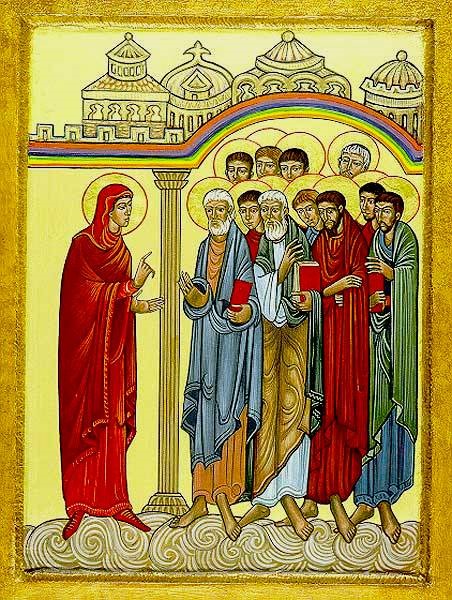
Mary Magdalene, the “Apostle to the Apostles”
11 ¶But Mary stood without at the sepulchre weeping: and as she wept, she stooped down, and looked into the sepulchre,
12 And seeth two angels in white sitting, the one at the head, and the other at the feet, where the body of Jesus had lain.
13 And they say unto her, Woman, why weepest thou? She saith unto them, Because they have taken away my Lord, and I know not where they have laid him.
14 And when she had thus said, she turned herself back, and saw Jesus standing, …
16 Jesus saith unto her, Mary. She turned herself, and saith unto him, Rabboni …
17 Jesus saith unto her, Touch me not; for I am not yet ascended to my Father: but go to my brethren, and say unto them, I ascend unto my Father, and your Father; and to my God, and your God.
18 Mary Magdalene came and told the disciples that she had seen the Lord, and that he had spoken these things unto her. John 20:11-18
As we approach the Easter season, this passage from John is extraordinary, not only in its testament of the resurrected Christ but also because of whom Christ chose as the first witness of His resurrection—a woman, Mary Magdelene. Women in many ancient cultures were not considered competent witnesses. In other words, they were either not legally allowed to be witnesses, or there were severe restrictions on their ability to act as legitimate witnesses. Because of such restrictions, it is remarkable that Jesus appeared first to Mary. That Early Christian writers referred to her as the “apostle to the apostles” further punctuated the importance of her role as a witness to, arguably, the pivotal event of Christianity.
If Christ considered Mary an appropriate witness to this significant moment–indeed, instructed her to testify of it to His disciples—why then are women presently unable to serve as official witnesses to blessings, baptisms, and marriages in His church?
Are these policies mere cultural artifacts, like other practices now long-abandoned in the modern, Western world, such as prohibitions on women speaking publicly, or inheriting land, or voting, or serving on juries? More crucially, are such policies worthy of a church that bears Christ’s name?
We, like Mary before us, are ready to witness.





